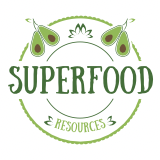Unlocking the Secrets of Superfood Science: A Comprehensive Guide
In recent years, the concept of superfoods has stormed the health and wellness world, promising a myriad of benefits from elevated energy to disease prevention. As consumers grow curious about these nutrient-packed foods, understanding the science behind them becomes essential. This guide delves into superfood science, breaking down the hype and exploring the evidence-backed advantages these foods bring. Whether you’re a curious eater or a health aficionado, join us as we explore how superfoods can become a part of your optimal diet strategy.
What Defines a Superfood?
At first glance, the term “superfood” might evoke images of magical fruits or herbs with unparalleled health benefits. Yet, the truth is decidedly less mystical. A superfood is defined by its exceptional nutritional profile, boasting high levels of vitamins, minerals, and antioxidants compared to other foods. These nutrient-dense options can significantly enhance dietary quality and overall health.
There are plenty of myths surrounding superfoods, such as the belief that they can counteract poor dietary habits or deliver miraculous cures. However, while they offer substantial nutritional benefits, they are not a substitute for a balanced diet. Foods like blueberries, kale, and quinoa have garnered the superfood label due to their rich concentrations of essential nutrients. Recognizing these common misconceptions is the first step in making informed, health-enhancing food choices.
The Science Behind Superfoods
Scientific research plays a crucial role in validating the health benefits attributed to superfoods. Numerous studies highlight key compounds such as antioxidants and phytochemicals, which contribute to numerous health advantages.
Antioxidants, found abundantly in berries, dark chocolate, and green tea, combat oxidative stress linked to chronic diseases. Phytochemicals, naturally occurring chemical compounds found in plants, are crucial for maintaining cellular health. Flavonoids and polyphenols, two prominent phytochemicals present in many superfoods, offer anti-inflammatory and heart-protective benefits.
The nutritional science behind superfoods underscores their potential to support health when consumed as part of a varied diet. This evidence-driven approach helps distinguish genuinely beneficial foods from merely trendy options.
Top Science-Backed Superfoods to Include in Your Diet
Integrating superfoods into your diet doesn’t mean you need a complete culinary overhaul. From nuts high in omega-3 fatty acids to vitamin-rich leafy greens like spinach and broccoli, superfoods are both diverse and accessible.
Berries, specifically blueberries, are recognized for their potent antioxidant content, supporting cardiovascular health and mental clarity. Nuts, such as almonds and walnuts, are valued for their heart-healthy fats and protein sources. Meanwhile, leafy greens like kale and Swiss chard are packed with fiber, promoting gut health and aiding in cholesterol management.
Incorporating these foods into your meals can be as simple as adding a handful of berries to your breakfast oats, using avocado in your salads, or blending superfood smoothies for a nutrient boost.
Superfoods and Disease Prevention
Research consistently points to the role of superfoods in disease prevention and health longevity. Many superfoods are linked to enhanced immunity and a reduced risk of chronic diseases like heart disease, diabetes, and cancer.
Dark chocolate and green tea contain compounds that improve blood circulation and lower blood pressure, benefiting heart health. Foods rich in omega-3 fatty acids, like chia seeds and certain nuts, are renowned for their anti-inflammatory properties and impact on brain function and aging.
Mental health also benefits from a superfood-rich diet. Studies suggest that omega-3 fatty acids and antioxidants can contribute to improved mood and cognitive function, offering potential protection against age-related mental decline.
Potential Risks and Considerations
While the benefits of superfoods are noteworthy, it’s important to remain cautious of potential downsides. For instance, consuming spirulina or herbal supplements in excessive amounts can lead to health issues.
The cornerstones of a healthy diet are moderation and variety. While superfoods can enhance nutrition, relying solely on them may neglect other essential food groups. Not all foods touted as superfoods meet rigorous scientific scrutiny; some may be part of marketing strategies rather than nutritional powerhouses.
To bypass these pitfalls, prioritize whole, unprocessed foods and look beyond packaging claims. Opt for organic and sustainably sourced options when possible.
Conclusion
In a world where dietary choices can directly impact our well-being, understanding the scientific basis of superfoods can guide us toward healthier living. By incorporating a variety of these nutrient-rich foods using evidence-backed knowledge, we can enhance our health journeys effectively. Embrace the power of superfoods, but remember, balance is key. Start small by adding one superfood to your weekly meals and observe the benefits!
We invite you to explore the rich tapestry of superfoods and experiment with them in your kitchen. Share your culinary creations and health transformations with us as you embark on your nutritional discovery journey. Together, we can unlock the full potential of these incredible foods, paving the way for lasting wellness.










